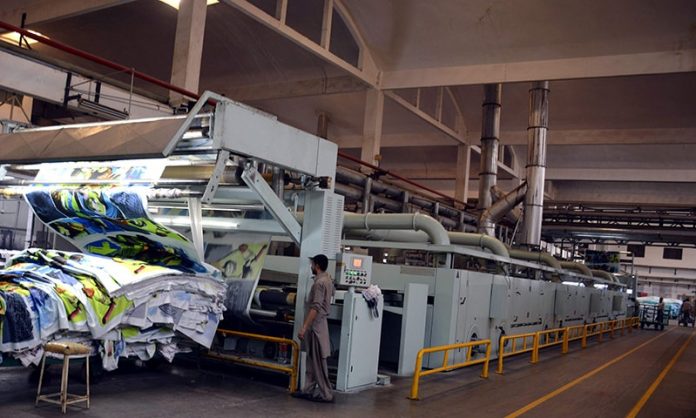LAHORE: Textile exporters on Wednesday made an appeal to Prime Minister Imran Khan to intervene and ensure the suspension of sales tax returns for a period of three months, complete moratorium on debt (both principal and interest), and defer all utility bills for at least three months.
In a letter to the Principal Secretary to the Prime Minister Mohammad Azam, the All Pakistan Textile Mills Association (APTMA) stated that under the current circumstances, where mills and offices have been shutdown, the cash flow has come to a halt and certain measures are immediately required to enable industry to keep paying its workers in accordance with the PM’s strategy on COVID-19.
Moreover, the notification of 7.5cents/KWh electricity for exporters has not yet been issued as this has been delayed for over a month, the letter reads.
Talking to Pakistan Today, Naveed Gulzar, a textile miller from Faisalabad, said the government has already decided new energy price (of 7.5 cents/kWh) for exporters after the Economic Coordination Committee (ECC)’s approval and the cabinet’s ratification.
“We don’t understand the rationale or motive behind holding the notification,” he said and lamented at the government for creating hurdles at a time when there is lockdown and governments of other countries are financially supporting their industries.
“We urge the Ministry of Power to not hold the notification and issue it as soon as possible so the industry could adjust prepaid amounts against current bills and cash flow is averted,” Gulzar said.
Shahid Nazir, a leading exporter, said during the prevailing economic breakdown worldwide most of retailers and brands had shut their stores and stopped further shipments due to the closure of borders.
“The federal government must release funds to exporters, pending on account of sales tax, income tax besides rebates,” he demanded.
He further demanded the government’s support for compensation on account of payments to workers without having production and the State Bank of Pakistan’s (SBP) intervention in freezing markup and deferring principal repayments of commercial banks from exporters.




